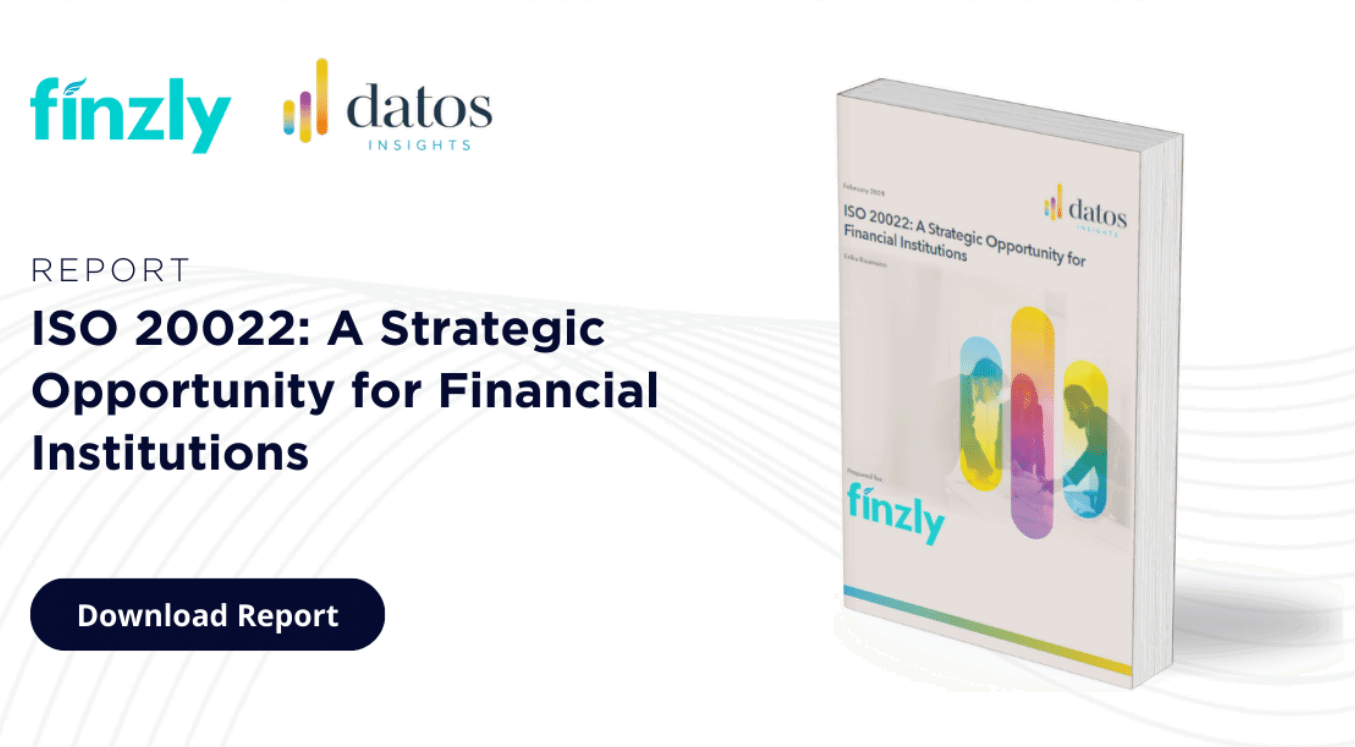
Finzly Announces Integration With Q2's Digital Banking Platform

New Datos report finds businesses plan to adopt the new messaging standard driven by the ability to automate payables and receivables. FedWire March 2025 migration deadline places urgency on FIs to accelerate preparedness to meet demand from businesses or risk losing market share.
CHARLOTTE, N.C. Feb. 29, 2024: The impending March 2025 migration deadline of FedWire to the ISO 20022 standard by all financial institutions (FIs) presents a strategic opportunity to revolutionize their payment infrastructure and services, according to a new Datos report, sponsored by Finzly, the pioneering provider of modern payments systems.
According to the Datos survey of US corporate finance professionals from 1,037 midsize and large organizations, around 57% are interested in using automated payables and receivables software, with 46% saying they plan to use ISO 20022 for this purpose. The survey found that 17% are already using the ISO standard. This challenges the perception that businesses are not interested in utilizing the new standard and gives FIs a clear business case for incorporating ISO 20022 standards into strategic roadmap prioritization efforts in 2024. The full report can be downloaded for free here.
ISO 20022 presents various benefits for FIs, including improved payment services, strengthened customer relationships, and diversified revenue streams. Furthermore, it offers unparalleled flexibility, interoperability, and efficiency compared to legacy formats, positioning FIs for long-term success in an increasingly digital economy.
The survey results highlight the immediate market opportunity for FIs to capitalize on existing customer demand for intelligent payment routing and embedded banking services enabled by ISO 20022 messaging standards.
With the March 2025 deadline looming, FIs face the critical task of implementing a cohesive strategy and selecting a suitable vendor partner to navigate the complexities of ISO 20022. Failure to do so could leave FIs at a competitive disadvantage and expose them to operational risks in an evolving landscape.
The transition to ISO 20022 is more than a technical upgrade - it's a strategic move to enhance efficiency, interoperability, and security in payment systems. FIs must embrace this change to remain competitive and future-proof their operations.
As the industry normalizes ISO 20022 as the primary message standard, FIs must act decisively to secure their position in the evolving financial ecosystem. By embracing ISO 20022, FIs can meet today's demands and anticipate tomorrow's needs, driving innovation and growth in the digital age. Finzly is well-positioned to meet certification deadlines for Fedwire migration to ISO 20022 with all its Fedwire clients, while also supporting other financial institutions seeking to transition to an ISO 20022-native solution for their Fedwire processing.
Source: PRWeb
